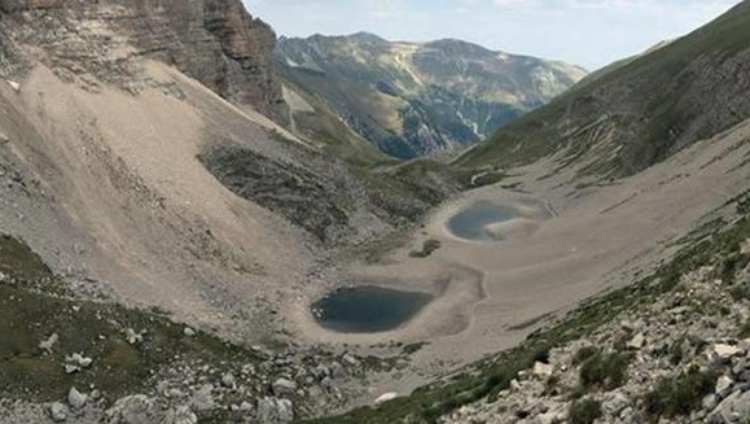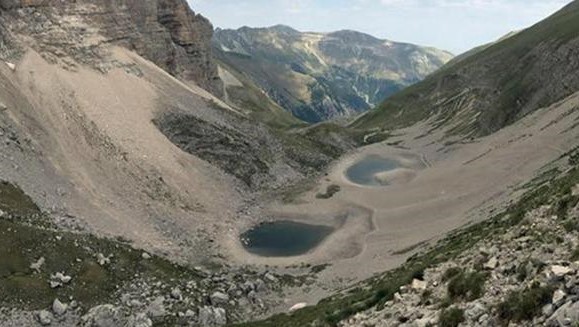It says the situation will potentially get even more serious in coming months.
Citing figures from the CIMA Research Foundation, Legambiente said the Italian Alps currently have a snow-water-equivalent deficit of 53 per cent compared to the average of the last ten years.
This is of major concern, as snow is an important source of water in spring and summer and ensures water supplies in the months it is most needed.
This deficit is due to reduced precipitation levels this winter, combined with mild winter temperatures that have brought forward the melting of snow on the mountains.
This has exacerbated an already difficult situation after the severe drought and long series of heatwaves Italy endured last summer hit water resources badly, causing substantial problems for agriculture.
Alpine snow is Italy's most important water reserve, since it supplies the Po River, Italy's longest river which runs from the Alps in the northwest to the Adriatic.
Last July, Italy declared a state of emergency for areas surrounding the Po, which accounts for roughly a third of the country's agricultural production, and suffered its worst drought for 70 years.
"We are in a water deficit situation that has been building up since the winter of 2020-2021," climate expert Massimiliano Pasqui, from Italian scientific research institute CNR, was quoted as saying by daily Corriere della Sera.
"We need to recover 500 millimetres in the north-western regions: we need 50 days of rain," he added.
Legambiente said the nationwide snow deficit stands at around 45 per cent.
Scientists say that extreme weather events like the heatwaves, supercharged storms, flooding and droughts are becoming more frequent and more intense because of climate change caused by human greenhouse-gas emissions.
"The year has only just started but it is already showing worrying signs in terms of extreme climate events and drought levels," Legambiente Director General Giorgio Zampetti said.
"It is necessary to immediately reduce water-resource withdrawals in several sectors and for various purposes before we get to the point of no return.
"It is necessary to adopt a national water strategy that has a circular approach."
The warning comes as Venice, where flooding is normally the primary concern, faces unusually low tides that are making it impossible for gondolas, water taxis and ambulances to navigate some of its famous canals.
The problems in Venice are being blamed on a combination of factors -- the lack of rain, a high pressure system, a full moon and sea currents.
Water levels on Lake Garda in northern Italy have fallen to record lows, making it possible to reach the small island of San Biagio on the lake via an exposed pathway.
An anticyclone has been dominating the weather in western Europe for 15 days, bringing mild temperatures more normally seen in late spring.
Latest weather forecasts do, however, signal the arrival of much-needed precipitation and snow in the Alps in coming days.
Legambiente has outlined an eight-point plan it said Premier Giorgia Meloni's government should adopt to cope with the emergency in the short, medium and long terms, including making water-related investments exempt from tax.
ANSA & AAP











